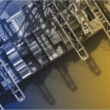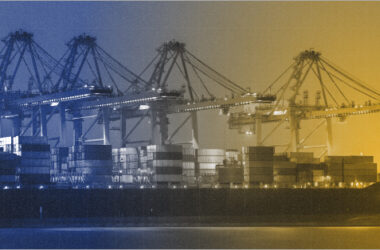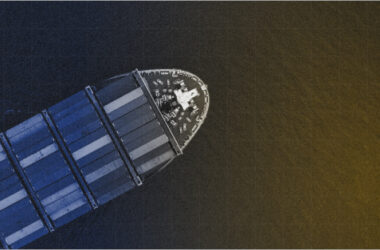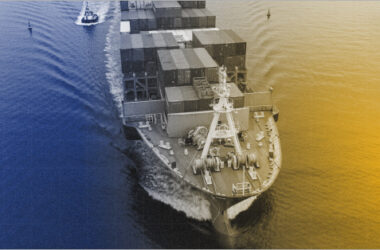Global trade thrives on the seamless movement of goods. But with oceans vast and unpredictable, highways vulnerable to mishaps, and railways fraught with logistical challenges, cargo remains perpetually at risk. Enter the Marine Insurance Policy, the silent shield that protects businesses from devastating losses. At the heart of this protection lies the Institute Cargo Clauses (ICC)—meticulously crafted provisions that dictate what’s covered, what’s not and how claims unfold.
Established by the Institute of London Underwriters (ILU), now overseen by the International Underwriting Association (IUA), these clauses have become the gold standard in Marine Cargo Insurance, ensuring coverage uniformity worldwide, including in India. Whether you are shipping electronics, pharmaceuticals or bulk commodities, grasping the nuances of the Institute Cargo Clause is non-negotiable.
What Are Institute Cargo Clauses (ICC)?
Institute Cargo Clauses are standardised sets of terms that define cargo insurance coverage. They eliminate ambiguity, offering a structured approach to claim settlements and risk assessment. These clauses are categorised into three distinct types: ICC (A), ICC (B) and ICC (C). Each tier offers a varying degree of protection, allowing businesses to tailor coverage based on risk appetite and cargo value. In India, where trade routes span treacherous terrains and unpredictable waters, the Institute Cargo Clause ensures that insurers and cargo owners speak the same language—one of clarity and financial security.
Different Types of Institute Cargo Clauses
- Institute Cargo Clauses (A) – All Risks Coverage
ICC (A) is the “Rolls-Royce” of marine cargo insurance—offering an exhaustive, almost watertight level of coverage. If you are shipping fragile, high-value goods, this is your go-to clause.
What’s Covered?
- Fire, explosion and acts of nature (earthquakes, tsunamis, lightning).
- Theft, pilferage and mysterious disappearances.
- Water damage from rough seas, vessel sinking or flooding.
- Accidents—collisions, overturning, derailments, capsizing.
- General average (where losses are shared to save a voyage).
What’s Not?
- Deliberate misconduct of the insured.
- Gradual wear and tear, ordinary leakage.
- Losses or damages due to delay in delivery—even if caused by an insured peril.
- Inherent vice (goods that naturally spoil or degrade).
The Institute Cargo Clause (A) is indispensable for high-stakes shipments—cutting-edge electronics, luxury goods or perishable pharmaceuticals.
- Institute Cargo Clauses (B) – Named Perils Coverage in a Marine Insurance Policy
Stepping down a notch, ICC (B) offers a focused yet limited safety net to the property insured. It’s a middle-ground policy, balancing coverage and cost-effectiveness.
What’s Covered?
- Losses or damages due to fire, explosions and vessel sinkings.
- Acts of nature—earthquakes, lightning, volcanic eruptions.
- Water ingress into the cargo hold.
- Loss of entire packages overboard.
What’s Not?
- Losses or damages due to theft, pilferage and mysterious losses.
- Partial damage due to handling.
- Weather-related damage from specific incidents, such as storms or flooding, may not be covered under Institute Cargo Clause (B), especially if it results in gradual wear and tear.
This Institute Cargo Clause works well for bulk cargo—grain shipments, industrial machinery and moderately priced commodities.
- Institute Cargo Clauses (C) – Basic Risk Coverage in a Marine Insurance Policy
ICC (C) is the bare-bones policy, designed for shipments that don’t warrant extensive protection.
What’s Covered?
- Fire and explosions.
- Vessel grounding, capsizing or sinking.
- Overturning or derailment of transport vehicles.
- General average contributions.
What’s Not?
- Theft, pilferage or non-delivery.
- Water damage from weather conditions.
- Any partial loss, unless resulting from a major peril like a vessel sinking or grounding, is excluded.
This coverage in a Marine Insurance Policy is the go-to choice for bulk raw materials or cargo where minimal risk exposure is acceptable.
Key Differences Between ICC (A), ICC (B) and ICC (C) in a Marine Insurance Policy
| Coverage Aspect | ICC (A) – All Risks | ICC (B) – Named Perils | ICC (C) – Basic Risk |
| Fire & Explosion | Covered | Covered | Covered |
| Vessel Sinking/Stranding | Covered | Covered | Covered |
| Earthquake & Lightning | Covered | Covered | Not Covered |
| Theft & Pilferage | Covered | Not Covered | Not Covered |
| Water Damage | Covered | Covered | Not Covered |
| Overboard Loss | Covered | Covered | Not Covered |
| General Average | Covered | Covered | Covered |
Why Institute Cargo Clauses Matter in a Marine Insurance Policy in India
- Risk Management for Businesses
Indian exporters and importers operate in a landscape rife with uncertainty—port delays, unpredictable monsoons and piracy hotspots. The Institute Cargo Clause enables them to mitigate these risks efficiently.
- Global Trade Compliance
Since ICC is internationally recognised, Indian businesses gain credibility in global markets. Uniform Marine Insurance Policy terms mean fewer disputes and smoother claim settlements.
- Regulatory Alignment with IRDAI
The Insurance Regulatory and Development Authority of India (IRDAI) regulates insurance providers, ensuring that marine cargo policies adhere to national standards and international best practices. The ICC provides global consistency, though it’s not mandated by IRDAI.
Common Exclusions Under Institute Cargo Clauses
Even the best marine cargo policies have exclusions. Here are a few you should watch out for:
- War and Political Risks: War, riots, strikes, and other political risks are typically excluded unless a War Risk Clause is specifically added to the Marine Insurance Policy.
- Delay Losses: If your shipment is late and causes financial loss, don’t expect compensation.
- Negligence: Improper packaging? That’s on you.
- Inherent Vice: Perishable goods degrading naturally? Not covered by the Marine Insurance Policy, unless extra protection is taken.
How to Choose the Right ICC Clause for Your Shipment?
- Assess Cargo Value: Priceless goods? ICC (A) is your best bet.
- Analyse Transport Mode: Air and sea require broader Marine Insurance Policy coverage than road transport.
- Factor in Risk Exposure: Is the route high-risk? Opt for robust protection.
- Consider Industry Needs: Fragile cargo demands extensive coverage, while steel shipments may not.
Claim Process Under Institute Cargo Clauses in India
- Immediate Notification: Report losses to your property insured, as soon as they occur.
- Document Everything: Bill of lading, survey reports and invoices related to the property insured are crucial.
- Survey & Verification: Independent surveyors assess the damages before insurers process claims.
- Claim Settlement: If all checks out, you are compensated per policy terms.
The Bottomline:
Understanding Institute Cargo Clauses (ICC) in a Marine Insurance Policy is non-negotiable for businesses in maritime trade. Selecting the right clause—ICC (A), ICC (B) or ICC (C)—ensures financial security in an unpredictable world.
In India’s dynamic trade ecosystem, the right Marine Insurance backed by ICC clauses isn’t just a safety net—it’s a strategic necessity. Secure your cargo, ensure seamless logistics and keep your business afloat in turbulent waters!








